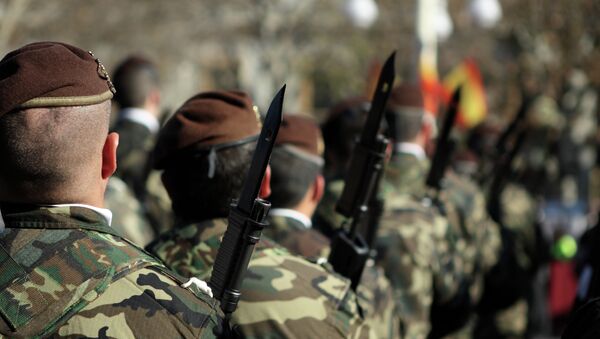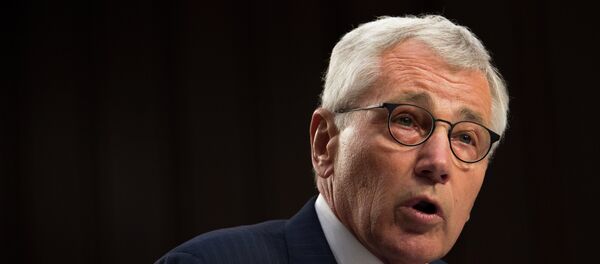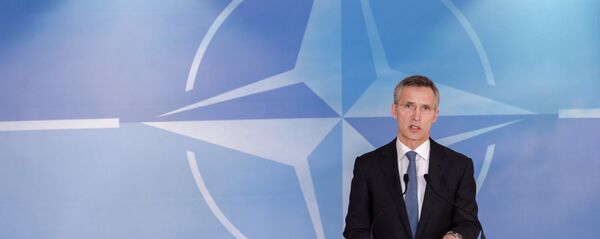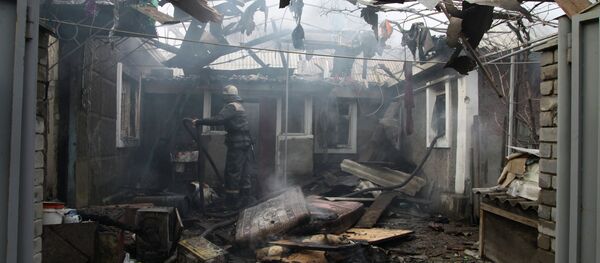"The opening up of additional military potential along our borders is nothing more than an attempt to exert pressure on Russia," Grushko said, adding that Russia's response will be "adequate" in any case.
According to the envoy, the "serious changes in the military-political situation" along the Russian border will "naturally" lead to changes in Russia's military planning, aimed at ensuring the country's security.
On Thursday, the defense ministers of NATO member-states agreed on the creation of six new command and control posts in Bulgaria, Estonia, Latvia, Lithuania, Poland and Romania during a meeting in Brussels. The ministers also announced that NATO's Response Force would be doubled to include up to 30,000 people.
On Thursday, the defense ministers of NATO member-states agreed on the creation of six new command and control posts in Bulgaria, Estonia, Latvia, Lithuania, Poland and Romania during a meeting in Brussels. The ministers also announced that NATO's Response Force would be doubled to include up to 30,000 people.
The decision "creates a great risk for Russia", primarily in the Baltics, which could become a region of "military confrontation", Grushko stressed.
The envoy added that the creation of a joint training center in Georgia, announced by NATO Secretary General Jens Stoltenberg on Thursday, will also contribute to geopolitical tensions and the aggravation of regional security.
Stoltenberg said at a press conference Thursday, following the Brussels meeting of NATO defense ministers, that the training center, to be set up in the Georgian capital, Tbilisi, will train both Georgian and NATO troops.
NATO's growing presence in Eastern Europe has been the subject of geopolitical tensions, with Russia having expressed growing concern over the buildup of NATO forces along its western border.
NATO, which has accused Russia of being involved in the Ukrainian crisis, claims that the expansion is aimed at protecting its member-states and allies.
NATO Weapon Supplies to Ukraine Would Lead to ‘Unpredictable’ Consequences
"NATO tells us that it does not supply anything, that lethal arms are not being supplied [to Ukraine]. The NATO leadership draws a line between supplies from the alliance and declares that NATO does not have weapons, all weapons are national, there are no NATO systems per se…however, from the perspective of the situation on the ground there would be no difference whether weapons would be supplied by NATO or separate NATO member-states," Grushko told Russian journalists.
"In either case, we presume that these deliveries are unacceptable, they would significantly aggravate the situation [in Ukraine] and could lead to the most dangerous and unpredictable consequences", the envoy stressed.
NATO allies disagree about providing lethal aid to Kiev that launched a military operation against independence supporters in Ukraine's southeast last spring.
German Chancellor Angela Merkel confirmed Tuesday that Germany will not provide weapons to Ukraine and will pursue a peaceful solution to the military conflict. However, US Senate Armed Services Committee Chairman John McCain continues to urge the Obama administration to provide Ukraine with lethal assistance.
On Tuesday, Denis Pushilin, the negotiator of the self-proclaimed people's republic of Donetsk (DPR) at the Minsk talks on Ukrainian reconciliation announced that shells with NATO markings have been used in Horlivka in southeastern Ukraine.
Pushilin also said that US warfare tactics are being used by Kiev forces that are fighting independence supporters in the region.





